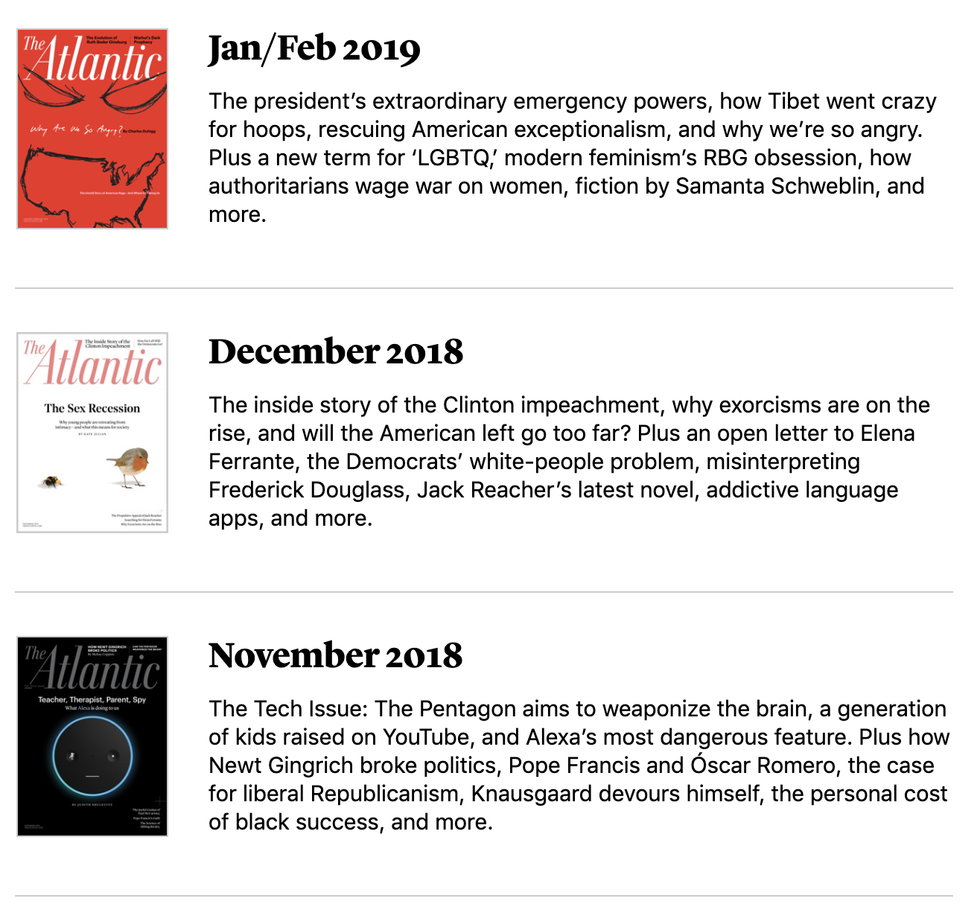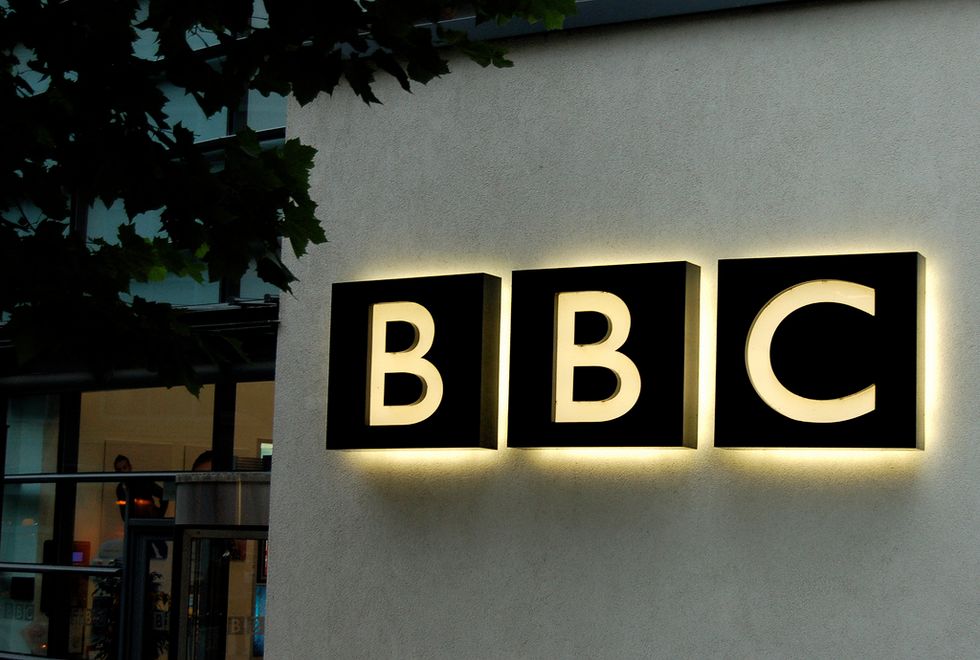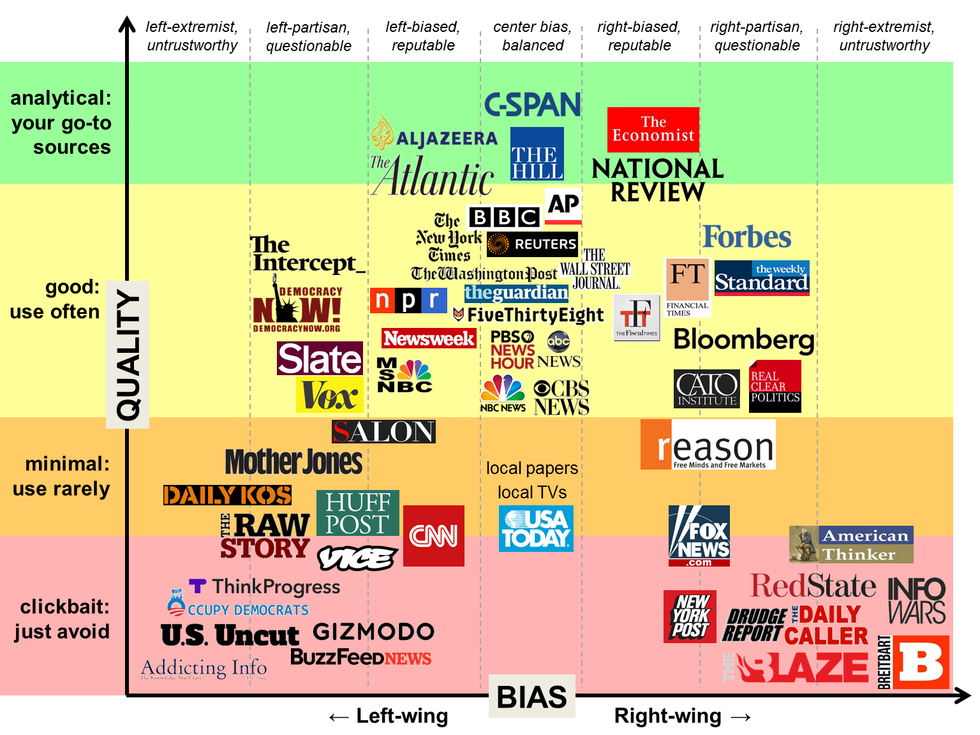Although we've been taught since grade school that fact is not opinion and opinion is not fact, people still seem to confuse the two when informing or educating themselves. It's very easy to sway an uninformed person to your side (especially one who is younger), as well as to make someone's current opinion even stronger with biased or even false information.
To prevent these wrongs and biases, we should all learn the concept of "Baloney Detection" as well as how to put that detection into proper use with what we read online.
Here is a helpful chart of what counts as a reputable, information and news website with more explained below.
1. The Atlantic

Recent issues of The Atlantic
The Atlantic
This is the first to come to attention as it is at the very top of the chart in being one of the most reputable and reliable websites. It does say that The Atlantic leans a bit left, however, most articles are quite neutral. This is a personal favorite, but for good reason. The articles vary from unique topics fit for all interests to current issues and recent news. There is a lack of short, quickly written pages of "breaking news" because each article is heavily researched, sourced, and much effort is put into the quality of it. The earliest posts I've seen on the most current news are posted a day after, and even then they are quite long. Speaking of length, that could be a potential con for some people because since each article is so information-heavy, most of them end up being a solid 20-minute read. So if you want to be properly cultured and educated, this is the place to go.
2. The BBC

BBC Headquarters
The BBC according to the chart is right in the middle of being a non-biased news source. BBC writes more about recent and major news, and although it is British (hence British Broadcasting Channel) the website discusses everything going on in the world, not just the U.K. They have topics based on countries, topics of culture, science, business, and more. However, unlike The Atlantic, the articles aren't such high quality and they do not go into great depth or detail. They are still sourced and researched, yet are meant more for a quick read.
3. Forbes and Bloomberg

Forbes Cover on the DJ Marshmello
According to the chart, these two websites lean more to the right politically, and even if they lean to the left this does not mean that they are not reputable in any way. I'll admit, I lean left. Yet these two sources are so well researched, simply written and easy to understand. They discuss nearly everything in our current economy (money, business, culture), that I cannot disagree with them just because they supposedly "lean right". This goes to show that it does not matter which way a reputable source leans as long as they write the truth (fact-check!) and have informed opinions. It would be naive and immature of me to not like or read from a source that is clearly reliable but just so happens every once in a while to "lean".
If we want to truly be informed, cultured, and educated individuals, reading these few websites would be a good start. They cover topics for anyone's interest, bring awareness, and are easy to understand. Bias and fake news should not divide us.
























